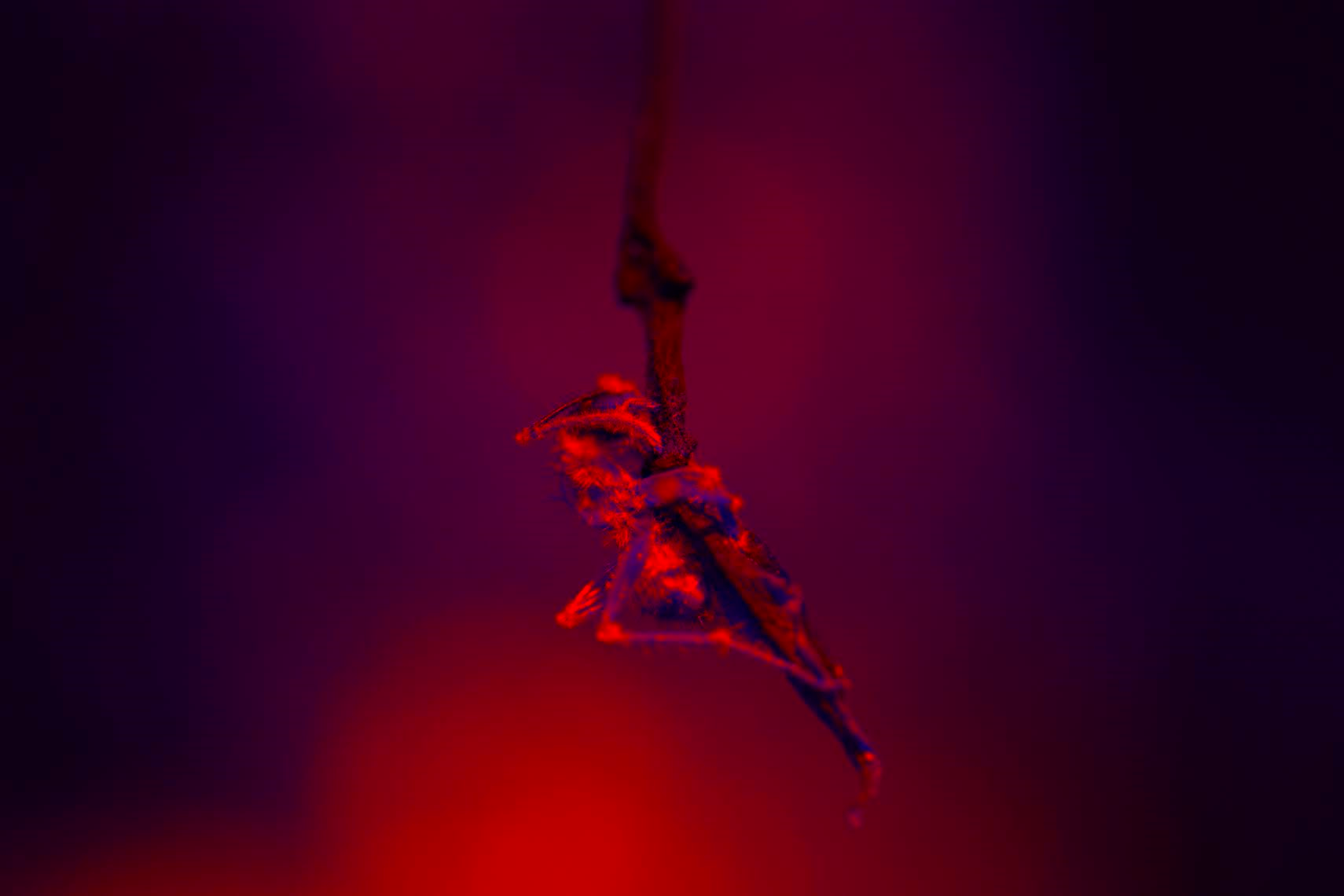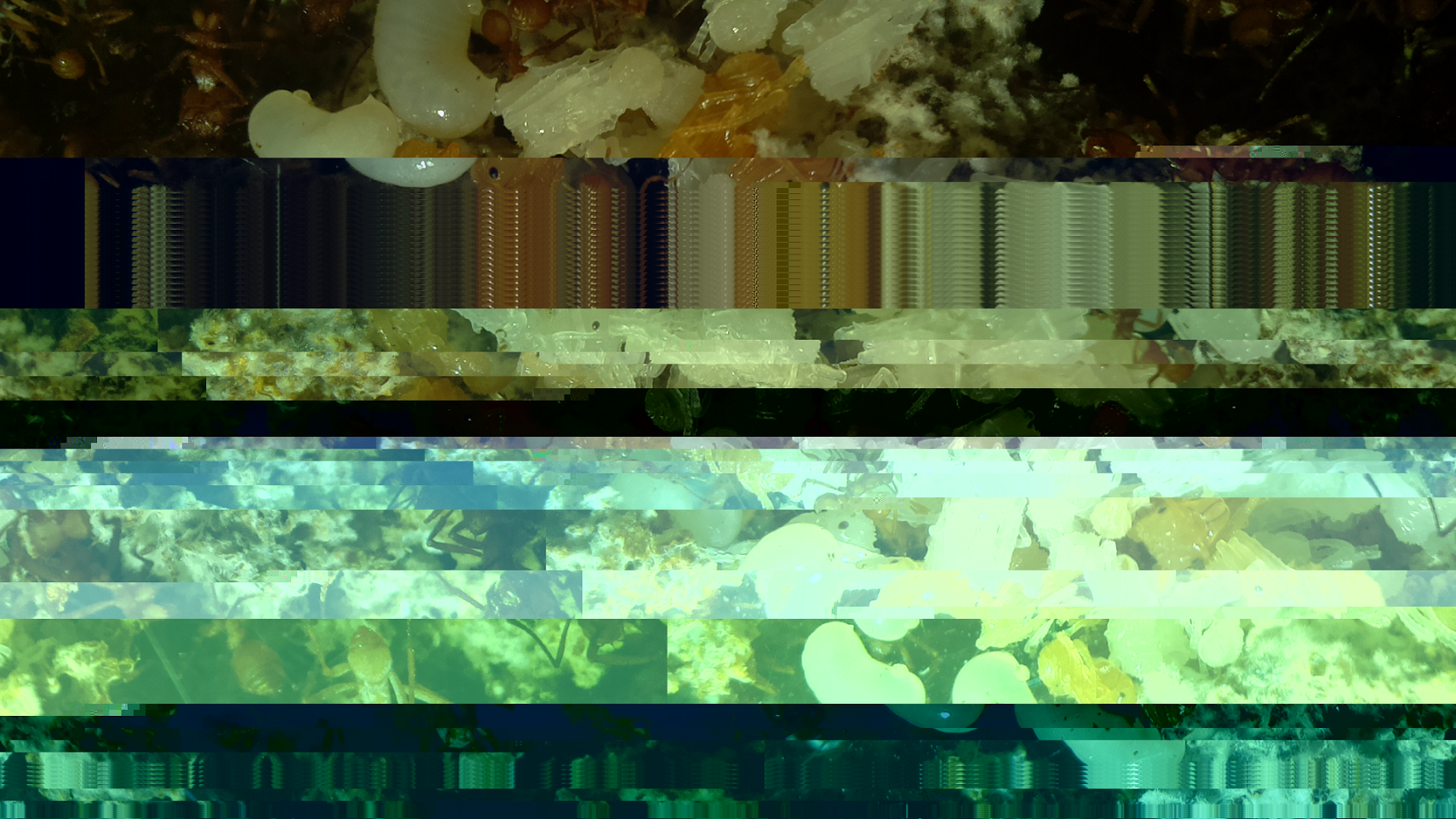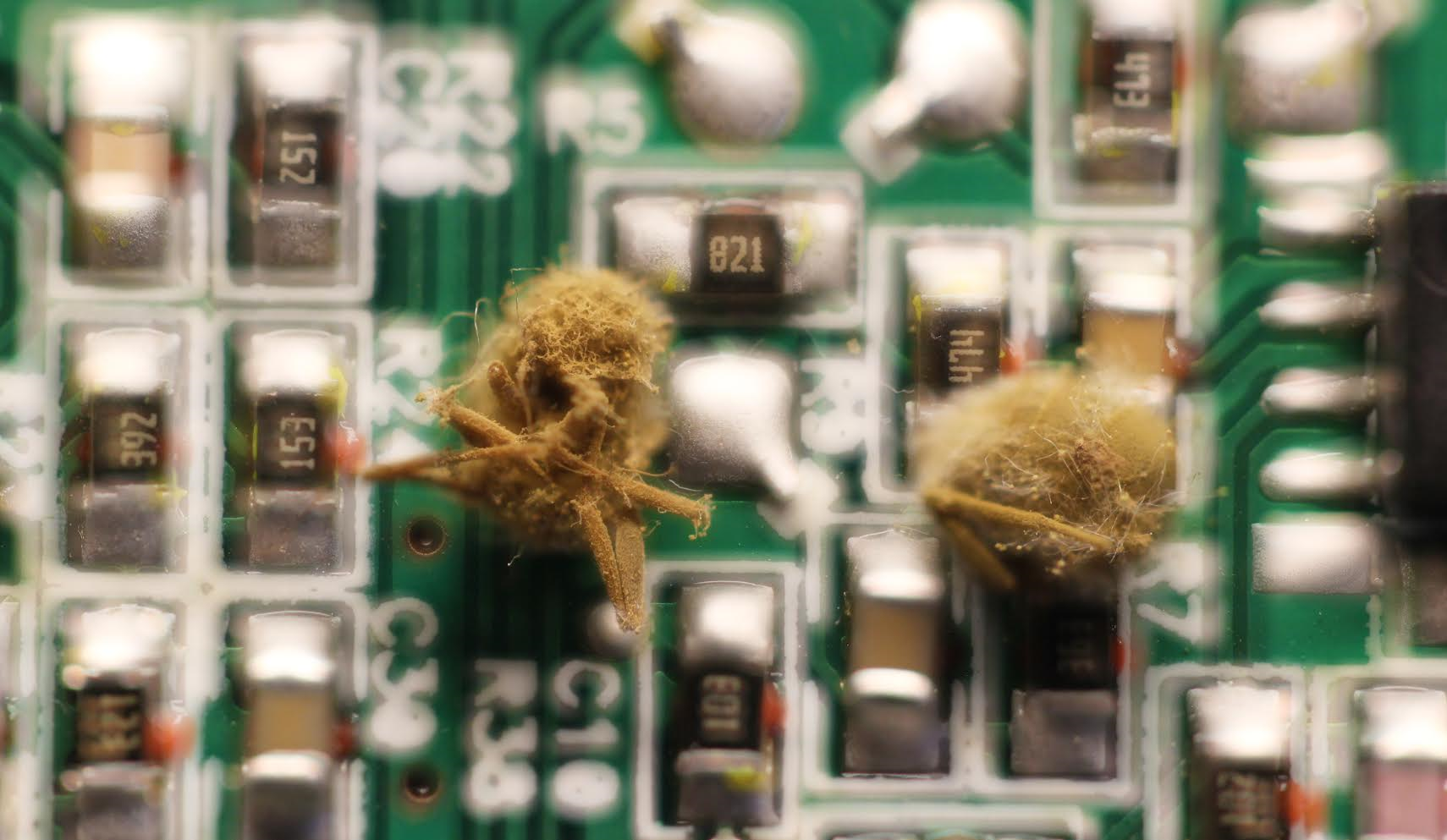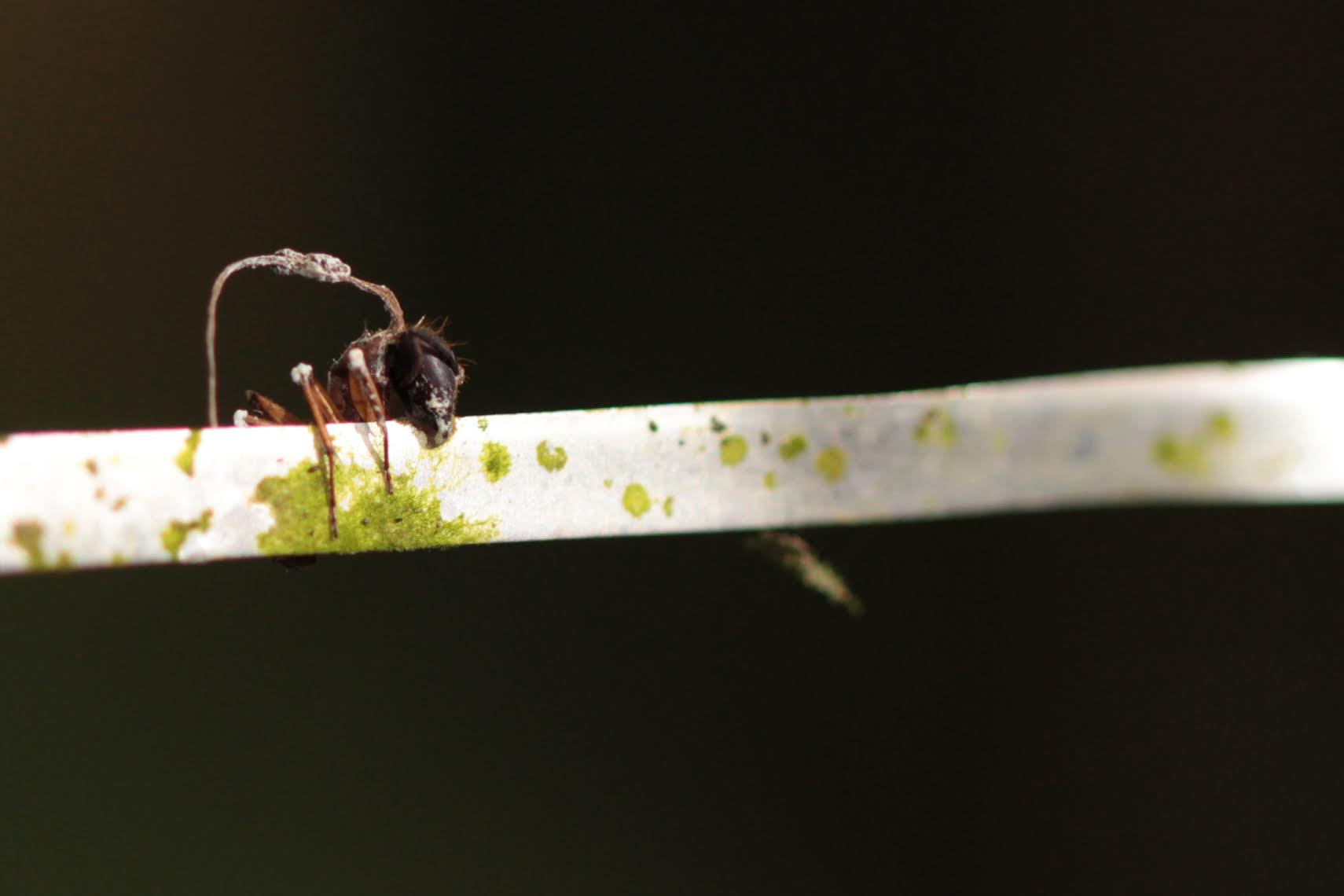

The social life of insects, especially of ants, has been an inspiration and role model for humankind over centuries. The human mind has seen in ants something oddly similar to us, yet bizarre and irrational to our comprehension. But the image of laborious ants is a deceit. Ants are not trivial goal driven machines, but individuals with erratic ecological flexibility stimulated by fundamental social forces.
The audiovisual installation is inspired by the infection of viruses and the emergence of parasites as an aesthetic manifestation symbolizing the struggle between host and guest; to deceive is to survive, a vital strategy in both the organism and the artifice: a phenomenological approach to understand the consumption of and dependency on technology nowadays. The parasite deceives the social in order to be part of the social.
Viral Ecologies: Technologic Hypnotism And The Zombie Ants is inspired by Gabriel Tardeʼs theory on the social forces of imitation. A glitch manifestation by means of data bending and computer visual algorithms inspired by the life cycle of the parasitical fungus which lives in the brains of zombie ants, 'Ophiocordyceps unilateralis'.




Kuai Shen is an audiovisual naturalist and ant lover from Guayaquil, Ecuador. His audiovisual installations reflect on the remediation between ants and humans as a metaphor for a nonhuman ecology whose future lies in the mutualism between artifacts and organisms. His current research focuses on ant mimicry in the post-biologic technology of humans based on emergence, resiliency and imitation-contagion phenomena. In 2013 he received an honorary mention in hybrid art from the Prix Ars Electronica for “0h!m1gas”. In 2014 he was honored with the Cynetart Förderpreis des Sächsischen Kunstministerium for his work “Playing with ants & other insects”.